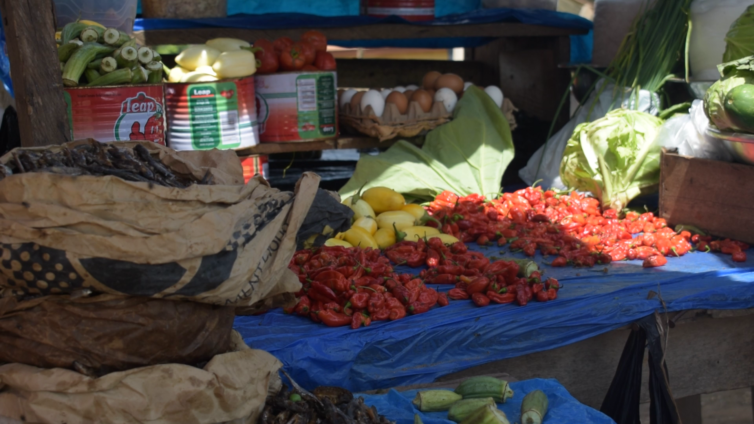
Audio By Carbonatix
Former Director of Operations at ESOKO, Nana Okyir Baidoo, has called on the government to revisit and intensify its Planting for Food and Job (PFJ) policy to enhance food production in the country.
According to him, the PFJ has the potential to fully eradicate Ghana’s food insecurity and prevent future food inflations as is being experienced now.
Speaking on JoyNews’ PM Express, the Agric Analyst said the PFJ should be the annual agricultural sector policy if the country intends to have enough locally grown food to sustain itself.
“So I’ll take you to 2019 where the PFJ programme was in full swing. So in 2019 because of the investments that was made through the PFJ programme we achieved record outputs for a lot of the staples that we eat. So for things like corn, rice, soya bean, production increased by about 53%, 42% etc. and the PFJ, I believe, should not be a one off thing.
“That should be our annual agricultural sector policy. Now if we did that and productivity consistently increased, it means that even in the event where other things are going up, at least we will have enough food to sustain ourselves,” he said.
He further pointed out that while Ghanaians currently spend a very large chunk of their monthly expenses on food, increasing food production could reduce the percentage spent on food thus allowing for monies to be spent on other pressing needs.
“So in the US, food is available through imports or local production. The average US person spends 10% of their budget on food. Let’s say US is advanced, let’s use Brazil. In Brazil, the average person spends 14% of their income on food, but in Ghana, if you earn 700 cedis a month, which is double the national minimum wage, and you spend 200 cedis a month on food, even that’s very conservative, people spend 20 cedis a day, so it means that the percentage you’re spending on food is a lot higher than it should be which will actually impact on what you have to spend on other things.
“But if we had larger production and food was cheaper and you could spend less on food and worry about other things, then we wouldn’t need to increase especially food prices this much. That will bring down food inflation,” he said.
He added that “That goes a long way to affect other things but of course, the gap between wholesale prices of food and what we find on the market is between 22 to 60% margin. So there’s a lot of things which go in there which we need to address. But at least at the production level we would have made some progress.”
Latest Stories
-
JUSAG declares strike on January 19 over unpaid salary arrears
44 minutes -
Anderlecht and QPR join race for Jalal Abdullai after impressive Molde loan spell
47 minutes -
I am confident there won’t be a rerun in Kpandai—Haruna Mohammed
50 minutes -
NPP should’ve invited Prof Frimpong-Boateng for a chat over ‘fake party’ comment – Nyaho-Tamakloe
1 hour -
Ghana Publishing Company in strong financial shape after 10 months – Managing Director
1 hour -
Many NPP members share Frimpong-Boateng’s views; NPP should prepare to expel them too – Dr Nyaho-Tamekloe
1 hour -
I’m not leaving – Prof. Frimpong-Boateng defies NPP expulsion threats
1 hour -
If you know you have misused public funds, be prepared to return it – Asiedu Nketia
1 hour -
Police arrest three over taxi phone-snatching syndicate
1 hour -
NPP’s move against Frimpong-Boateng raises fairness concerns – Asah-Asante
2 hours -
I’m not leaving NPP; the fake people should rather go – Prof. Frimpong-Boateng
2 hours -
‘We have met Pontius Pilate’ – Judge declines state’s bid to drop Abu Trica co-accused charges
2 hours -
Who said Ofori-Atta was picked up from an ICU bed? – Frank Davies questions ‘medically fit’ claim
2 hours -
We’ll win the Kpandai re-run—Tanko-Computer
2 hours -
Ghana facing acute teacher shortage as 30,000 classrooms left without teachers – Eduwatch
2 hours

